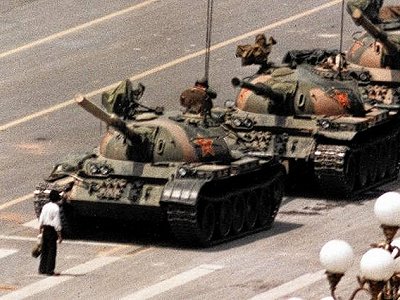
SO LAST CENTURY
We ignore the recent past at our peril because it is unfinished business.
What did we learn from the twentieth century?
We have become skilled at commemorating dates in round numbers and building museums to recall great and terrible events, but in doing so we should not assume we have mastered the narratives of history. In fact it is worrying how blithely we have consigned recent history to the bin. This may have happened because of an unusual confluence of political and technological change at the edge of the new century. The dismantling of Soviet communism and the emergence of the information revolution led to many hubristic claims as the old century drew to a close: ‘the end of history’ perhaps being the best known. The world felt young and fresh, encouraged by breathless media and something approaching contempt for the value of history among a new generation of political leaders. It became easy to neglect complicated and interwoven narratives like the relationship between the Cold War and Africa or Central Asia and to assume that an event like the Holocaust could not happen again. The sorrow of the Congo, the events of September 11 and a pulsating neo-antisemitism have questioned the wisdom of acting as if 31st December 1999 marked a full stop and not a ‘to be continued’ in the drama of history.
Two things have caused me to think about such carelessness recently. The first has been a reading of historian Tony Judt’s Reappraisals: reflections on the forgotten twentieth century (Vintage 2009), a collection of essays on the people, places and memories of a turbulent past. The other has been helping Tim with his History GCSE where choices made from the syllabus overlooked the opportunity that a study of the great events of the last century might provide in favour of a history of medicine and the crimes of Jack the Ripper. I am struggling with the keyboard now not to imagine how schoolchildren in the early twenty-second century might interpret our lifetime through the distinguished prism of Katie Price and Peter Andre. Then again, perhaps that is all we will deserve.
The perils of new generations not understanding a past which is still obtainable for them through living testimony can be witnessed in Russia and China. A police raid on the headquarters of the Russian Human Rights organisation Memorial last year led to the seizure of its entire archive of testimony about the gulags and upon which British historian Orlando Figes based his remarkable book The Whisperers, telling the stories of how ordinary Russians coped with Stalinist terror. In such incremental ways the Russian authorities are proving able to alter perceptions of its dark twentieth century history. The slow rehabilitation of Stalin began under Vladimir Putin who, by chance, succeeded Boris Yeltsin as Russian President on the last day of the twentieth century, giving a little pointer for us to the continuity between epochs we have carelessly separated.
Meanwhile, China in June 2009 succeeded in quelling any memorial of the Tiananmen Square massacre of civilians by the People’s Liberation Army twenty years previously. The relentless and obsessive repression of what the Chinese government calls either ‘the incident’ or a ‘counter-revolutionary riot’ has succeeded. In a recent survey of students at Beijing University hardly any of the young people knew anything at all about the massacre of previous alumni, though they cannot be blamed for such ignorance. With our inattention to the last century, can we be sure that British children who grow up to deal with China as its business partners will know any more than those Beijing students do even with unlimited access to the truth?
The Christian faith itself is built on living testimony. In the sacrament of bread and wine the Church calls to memory the saving act of Christ himself and by the presence of the Holy Spirit bears witness to God’s goodness in the ordinary lives of its members. All that has been said above about inattention to the secular historical record has resonance for the Church. Lack of basic Bible knowledge among Christian communities and the growing pressure that both law and custom are slowly exerting not to share the faith publicly are unwelcome developments in our generation. The inspiration we can draw on is that testimony is individual: we have it in our power to change our world one word, one deed at a time.
POPULAR ARTICLES

Obama's Covert Wars
The use of drones is going to change warfare out of all recognition in the next decades.

Through A Glass Starkly
Images of traumatic incidents caught on mobile phone can be put to remarkable effect.

What Are British Values?
Is there a British identity and if so, what has shaped the values and institutions that form it?


